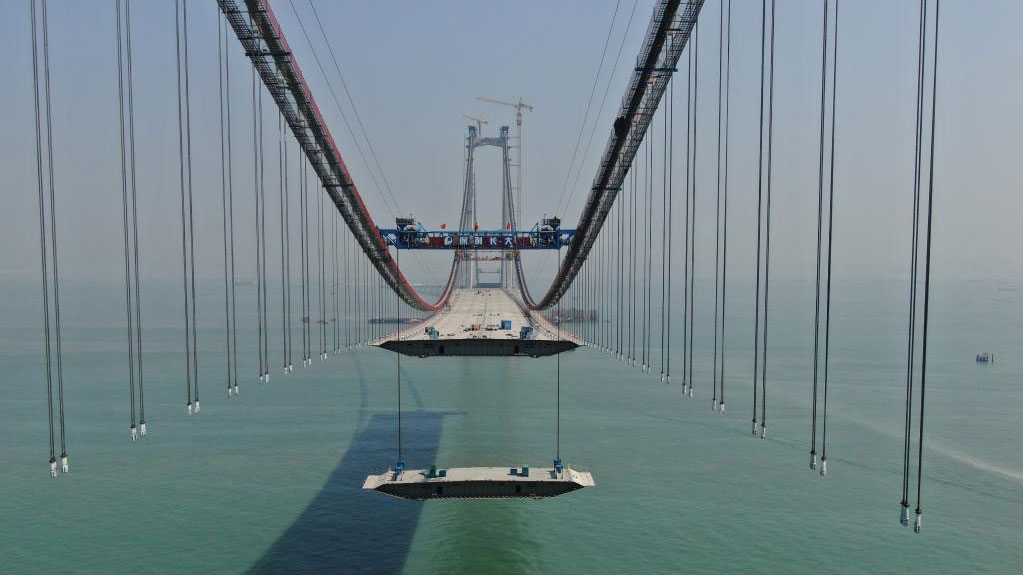Feature: Amid emotional aftermath, Turkish quake survivors need mental health aid
ANKARA, Feb. 25 (Xinhua) -- As survivors of the earthquakes in Türkiye are facing devastating trauma and loss, psychological support is essential for healing after a disaster of such proportions that has affected millions, experts said.
Tens of thousands of people died in the massive earthquakes striking Türkiye and Syria on Feb. 6. The Turkish Enterprise and Business Confederation put the cost of the disaster in the country at 84.1 billion dollars, but the mental health consequences remain incalculable.
"The most vulnerable groups are women, children, people with prior mental health disorders, and people with disabilities," said Ankara-based psychiatrist Hande Karakilic Ucer.
Not to mention the children who have lost both parents to the disaster and been separated from their extended families, she told Xinhua.
Research conducted by the Turkish Health Ministry following the 1999 earthquake showed that children and adolescents are more prone to developing mental health problems than adults are when they have been exposed to traumatic natural disasters.
People around children should not act as if nothing happened, Ucer noted, referring to the danger of victims shutting down their emotions in face of the trauma.
"We have to be open with children and explain this disaster to them in a language that they can comprehend," she said, adding that "play therapy" and establishing a daily routine are essential for children to survive a grieving period.
In Türkiye, the 7.7 and 7.6 magnitude quakes have claimed 44,218 lives, according to the latest statistics on Saturday. Expert psychologists and psychiatrists have been dispatched to the quake-hit regions to help residents cope with the profound impact.
Experts also recommend survivors limit their consumption of bad news and disturbing social media posts over the catastrophe.
"Media exposure can influence our behavior following a natural disaster, and trigger mental disorders," Ucer said.
Seda Ozcan is a 27-year-old earthquake survivor from Antakya, a city near the Syrian border leveled by the earthquakes.
Since the disaster, she is experiencing debilitating anxiety attacks that keep her up at night and from going through normal daily tasks.
"It's not the earthquakes itself, it's the whole situation we are facing, homelessness, concerns about the future, it's hard," she told Xinhua in Ankara, to which her family has been evacuated.
Offering psychological support to those impacted by a disaster involves a long process, health professionals say, as tiding through stages of trauma takes time.
The vastness of the quake-hit zone spanning over 10 Turkish provinces home to 13.5 million people adds to the challenge.
"In six months, survivors will enter the disappointment phase, and then will they face the bitter reality of things, ultimately followed by the healing phase," Ucer said.
Photos
Related Stories
- Aftermath of quake-hit city of Kahramanmaras, Türkiye
- Powerful earthquake jolts eastern Indonesia, no casualties reported
- 7.2-magnitude quake hits Tajikistan
- 6 killed, 296 injured in new quakes in Türkiye's Hatay: disaster agency
- Turkish president pledges to build new homes for displaced quake survivors in 1 year
Copyright © 2023 People's Daily Online. All Rights Reserved.









